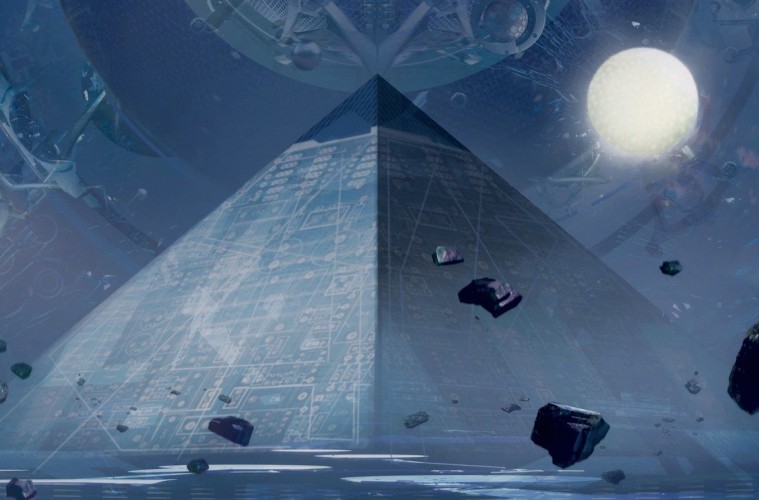The Three-Body Problem by Cixin Liu was initially published in China in 2006, and the English translation by Ken Liu is nominated for a Hugo Award this year. While the book has proven to be immensely popular in its native country, I think that much of its appeal has been lost in translation. The book was pitched to me as the story of a world preparing for an alien invasion, which is true… sort of. It takes nearly 200 (out of 400) pages to actually establish that aliens are the crux of the book, and before that, I wasn’t on board.
Because of the book’s structure and content, The Three-Body Problem has a huge barrier to entry. It’s very political, but its politics all stem from the repercussions of the Chinese Cultural Revolution in the 1960s and 1970s, which is a topic that even politically-aware Americans probably only have a passing familiarity with. I spent the beginning of the book trying to ground myself in the unfamiliar landscape.
Then, obscuring my understanding even further, the plot hinges heavily on complicated physics. This is hard science fiction, people. There are passages that go on for multiple pages detailing scientific theory. It often left me with my eyes glazed over. Frankly, I just didn’t have the scientific background to find this kind of plot development interesting. The exception being when the main character, a professor called Wang Miao, speaks with police officer Da Shi throughout the book about the challenges the earth is facing in layman’s terms. Without these exchanges, I’m sure that I would have had no idea what was going on.
I might have been able to blame my own ignorance and overlook these issues if I had any attachment to the characters, but alas, I did not. All of the characters are completely flat, used only as tools to further the plot. Their motivations are often mystifying, and when the author does attempt to explain them, the reasoning is shallow and unconvincing. Most of the time they remain completely emotionally detached, and when they do express emotion, it often seems like a non-sequitur. There’s a moment in the first part of the book where Wang decides a fellow scientist is the most beautiful thing he’s ever seen and he can’t imagine the world without her in it, which is all fine and dandy, except that emotional attachment never comes up again. All of the characters were cardboard, which lowered the stakes. I really didn’t care what was going to happen to them once the aliens arrived.
It wasn’t all a complete drag. There was a subplot in the middle of the book that involved Wang participating in a virtual reality game. While I’m not actually convinced that this subplot was necessary to the story, the scenes inside the game are wacky and thrilling, involving characters from history acting completely out of character. It was a relief to be in this fun fantasy world, because the real world of The Three-Body problem is completely exhausting. This might be partially because of the translation. The language is utilitarian at its best and stilted and disjointed at its worst.
I do have to say, I’ve heard a lot of people rave about The Three-Body Problem, so maybe it just wasn’t for me. It succeeds as hard science fiction, and in that sense I can see why it’s been nominated for a Hugo. If you prefer plot over character, give it a try, but I would recommend looking up some quantum mechanics and the Chinese Cultural Revolution on Wikipedia before you dive in.
Featured image via Amazon.


